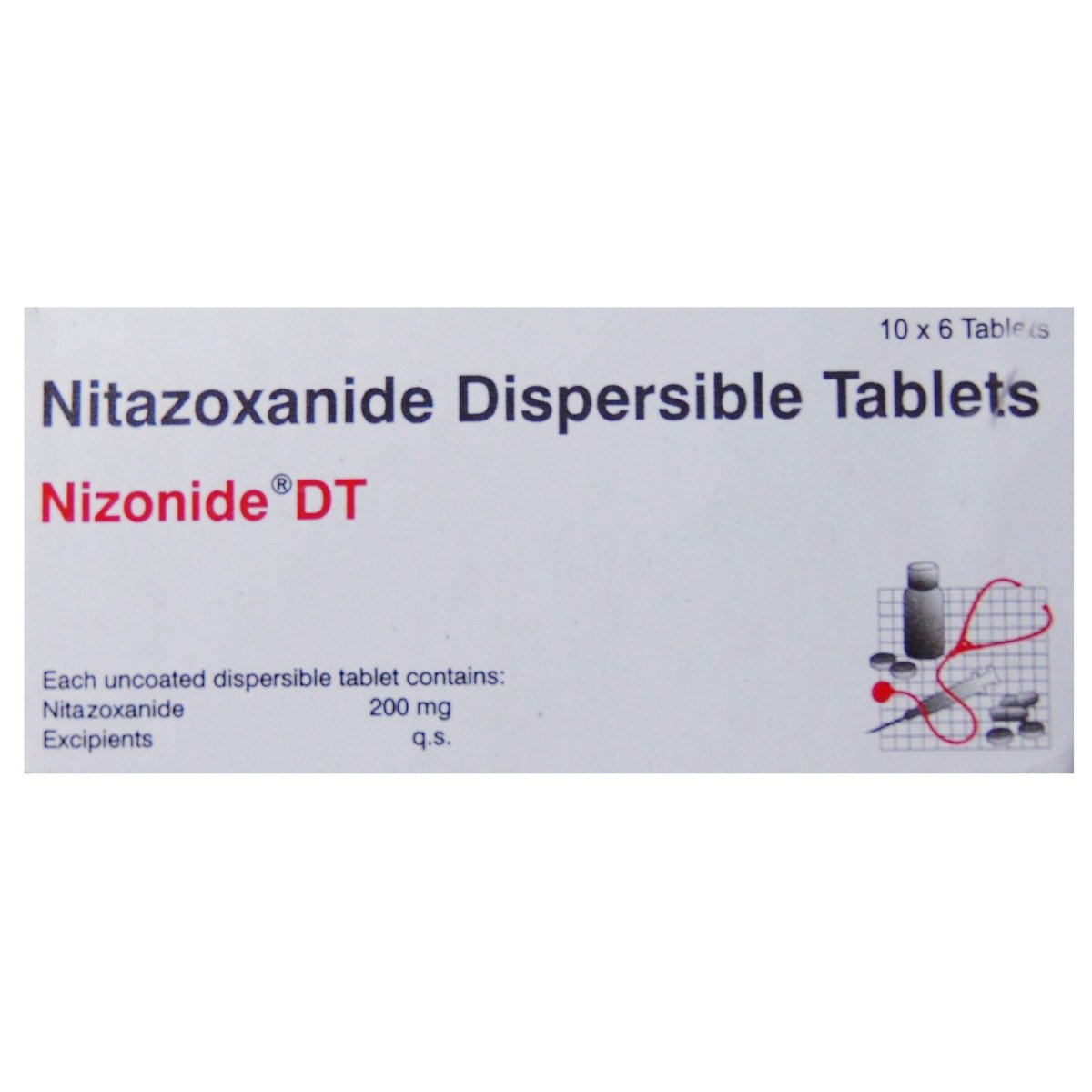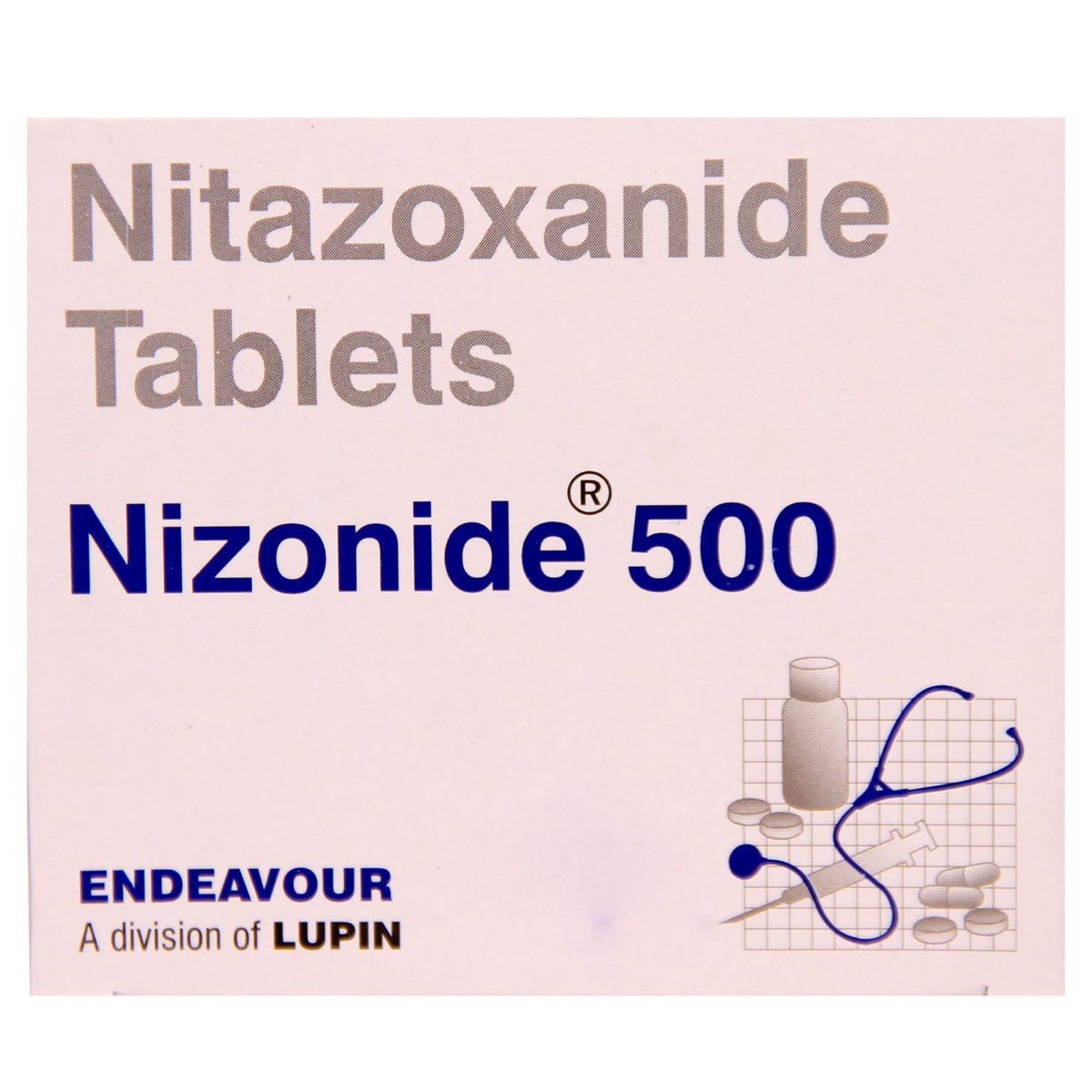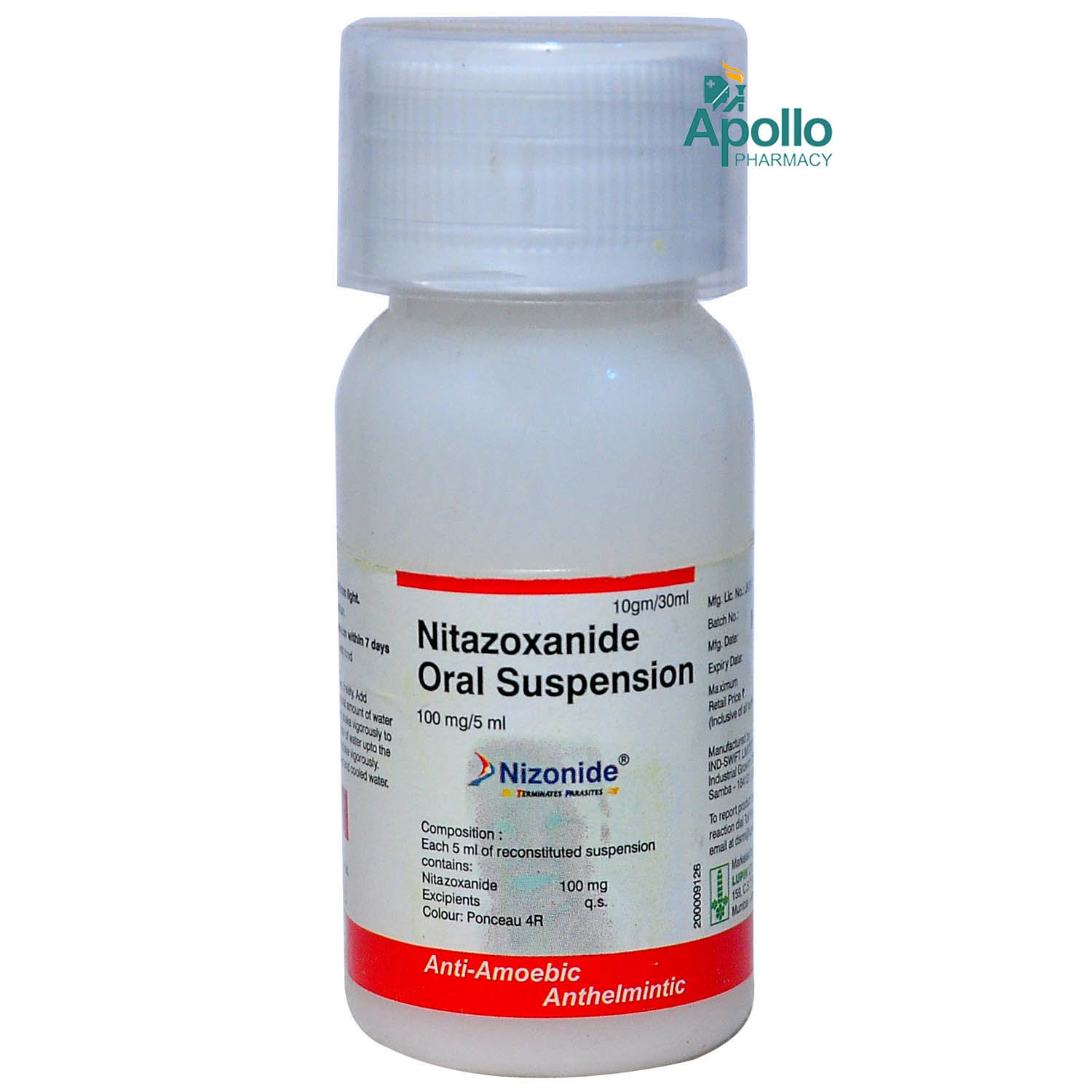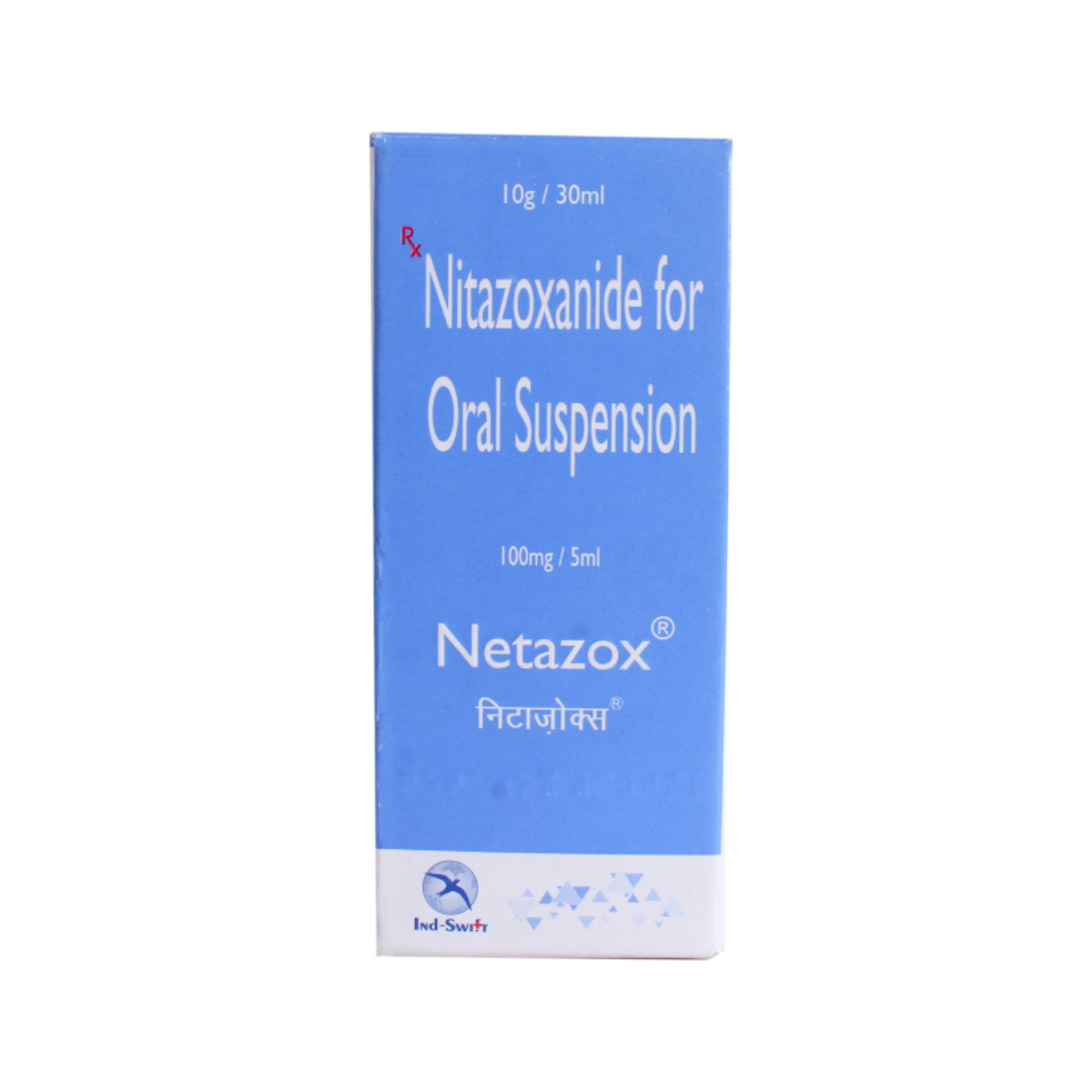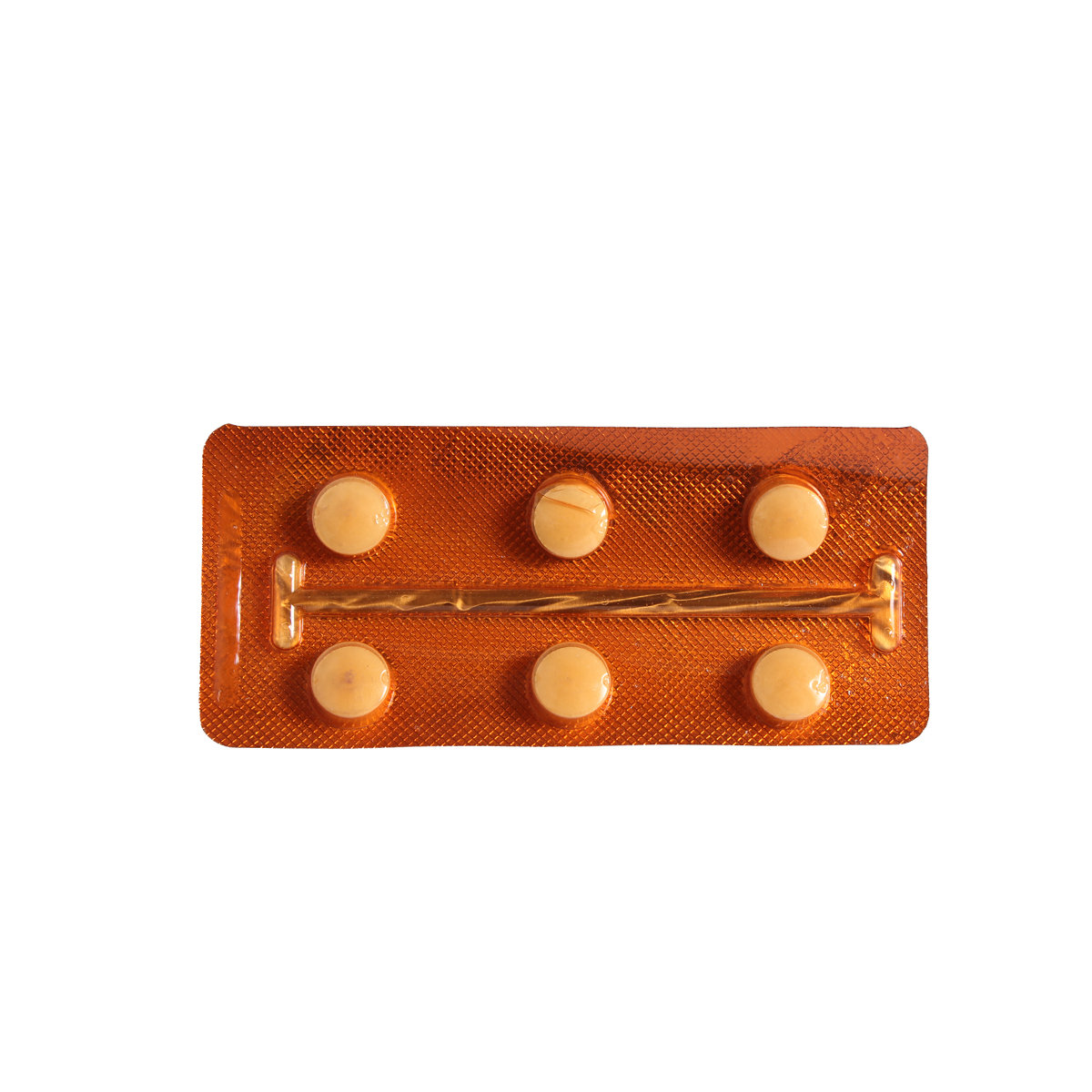Nitazoxanide
About Nitazoxanide
Nitazoxanide belongs to the class of 'antiprotozoal and antiviral' drugs, primarily used to treat diarrhoea caused by parasite infections of the intestines (Cryptosporidium parvum and Giardia lamblia). Nitazoxanide also treats protozoa infections caused by single-cell parasites that live in moist places like lakes, streams, and soil. Diarrhoea is a condition that causes the frequent passing of loose or watery stools.
Nitazoxanide contains Nitazoxanide, which belongs to the class of drugs known as thiazolides. Nitazoxanide is a broad-spectrum anti-parasitic medication. It inhibits the production of chemical substances required for energy metabolism and growth of protozoa, helminths (worm-like parasites), anaerobic (microbes that survive without oxygen), and microaerophilic (requires little oxygen to survive) and viruses. Nitazoxanide is effective in the treatment of gastrointestinal infections.
Please take Nitazoxanide in the dose and duration prescribed by your doctor based on your medical condition. Nitazoxanide is generally safe to use. However, some may experience side effects like nausea, vomiting, stomach pain, fever, hair loss, dizziness, giddiness, and headache. Most of these side effects of Nitazoxanide do not require medical attention and gradually resolve over time. If these side effects persist longer, please consult your doctor.
Inform your doctor if you have any liver or kidney diseases asthma, and weakened immune system before starting Nitazoxanide. If you are allergic to Nitazoxanide or any other medicines, please tell your doctor. Do not suddenly stop this medicine to avoid unpleasant side effects and sudden withdrawal symptoms. Intake of probiotics, prebiotics, and plenty of fluids is recommended if you are suffering from diarrhoea. Pregnant and breastfeeding women should use Nitazoxanide with proper consultation and caution. Do not drive or operate heavy machinery after taking Nitazoxanide as it may cause dizziness.
Uses of Nitazoxanide
Medicinal Benefits
Nitazoxanide contains Nitazoxanide, which belongs to the class of drugs known as thiazolides. Nitazoxanide is a broad-spectrum anti-parasitic, antiprotozoal, and antiviral medication, primarily used to treat diarrhoea. It inhibits the production of chemical substances required for energy metabolism and growth of protozoa, helminths (worm-like parasites), anaerobic (microbes that survive without oxygen), and microaerophilic (requires little oxygen to survive) and viruses. Nitazoxanide is effective in the treatment of gastrointestinal parasite infections, including Cryptosporidium parvum and Giardia lamblia.
Directions for Use
Storage
Side Effects of Nitazoxanide
- Nausea
- Vomiting
- Stomach pain
- Fever
- Hair loss
- Dizziness
- Giddiness
- Headache
Drug Warnings
Inform your doctor if you have any liver or kidney diseases, asthma, diabetes, and a weakened immune system before starting Nitazoxanide. If you are allergic to Nitazoxanide or any other medicines, please tell your doctor. Do not take Nitazoxanide on your own since it may lead to antibiotic-resistance failing the antibiotics to act against specific infections. Do not suddenly stop this medicine to avoid unpleasant side effects and sudden withdrawal symptoms. Please consult your doctor if you are planning to become pregnant or already pregnant before starting Nitazoxanide. Do not drive or operate heavy machinery after taking Nitazoxanide as it may cause dizziness. Nitazoxanide is not recommended for children less than one year of age.
Drug Interactions
Drug-Drug Interaction: Nitazoxanide may interact with blood thinners (warfarin), anxiety-treating medications (lorazepam), and medications used to treat fits (valproic acid).
Drug-Food Interaction: Alcohol consumption should be avoided as it may lead to dizziness.
Drug-Disease Interaction: Nitazoxanide should be cautiously administered when you have any liver or kidney diseases, asthma, diabetes, and a weakened immune system.
Drug-Drug Interactions Checker List:
Safety Advice

Alcohol
cautionAlcohol consumption may worsen the side effects of Nitazoxanide like dizziness. It is better to avoid alcohol while you are being treated with Nitazoxanide.

Pregnancy
cautionThere is limited data on how the Nitazoxanide affects pregnancy. Nitazoxanide should be used during pregnancy only if the benefit outweighs the risk. Please consult your doctor if you are planning to become pregnant or already pregnant before starting Nitazoxanide.

Breast Feeding
cautionNitazoxanide is excreted into the breast milk while used by a breastfeeding mother. Please consult your doctor before taking Nitazoxanide if you are breastfeeding.

Driving
cautionDo not drive or operate machinery if you experience any dizziness while using Nitazoxanide.

Liver
cautionPlease take Nitazoxanide with caution and doctor's advice if you have a history of liver diseases/conditions.

Kidney
cautionPlease take Nitazoxanide with caution and doctor's advice if you have a history of kidney diseases/conditions.

Children
cautionNitazoxanide is not recommended for children less than one year of age.
Habit Forming
Diet & Lifestyle Advise
- Antibiotics can alter the useful bacteria in the stomach. Therefore, you are advised to take foods rich in probiotics such as yoghurt/curd, kefir, sauerkraut, tempeh, kimchi, miso, kombucha, buttermilk, natto, and cheese.
- Eat fibre rich food like whole grains, beans, lentils, berries, broccoli, peas, and bananas.
- Avoid foods rich in calcium, grapefruit, and grapefruit juice as they might hinder antibiotic's absorption.
- If you have diarrhoea try to drink appropriate amounts of fluids to avoid dehydration.
- If you have minor diarrhoea (less than four stools daily) drinking caffeine-free soft drinks, juices or sport rehydration drinks can be sufficient.
- If the diarrhoea is more severe, specially formulated rehydration drinks should be taken.
- Avoid alcoholic beverages with Nitazoxanide as it can make you dehydrated and may affect your sleep. This can make it harder for your body to aid the Nitazoxanide in fighting off infections.
Patients Concern
Disease/Condition Glossary
Diarrhoea is a condition that causes the frequent passing of loose or watery stools. It is caused by bacteria (campylobacter and Escherichia coli), virus (norovirus or rotavirus), and parasites in contaminated food and water. Acute diarrhoea is a common problem and generally lasts for one or two days, whereas chronic diarrhoea lasts four weeks. Diarrhoea can be due to an infection, antibiotics, a disease (inflammatory bowel disease), and other medicines.
FAQs
Nitazoxanide contains Nitazoxanide. It is an antiprotozoal and antiviral drug that inhibits the production of chemical substances required for energy metabolism and growth of parasites, thus treating diarrhoea.
Please let your doctor know if you have a history of allergic reactions to medicines, liver or kidney diseases, asthma, weakened immune system, and diabetes before starting Nitazoxanide.
If you miss a dose, take it as soon as you remember. However, if it is time for the next scheduled dose, skip the missed dose and follow your usual dosage.
Do not stop using Nitazoxanide even if you feel better until the doctor's advised course is finished. Your symptoms may improve, but the infection may not be cured completely.



